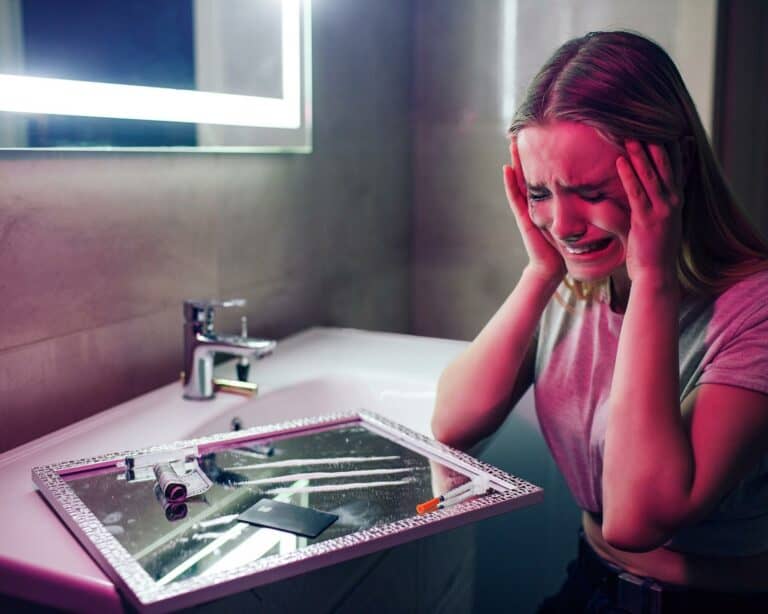Prescription opioids are medications prescribed to treat mild to severe cases of pain. While these medications are effective in reducing the symptoms of pain, they are also highly addictive. When someone is abusing prescription opioids, they are at an increased risk of suffering from an opioid overdose.
According to the CDC, “In 2020, an average of 44 people died each day from overdoses involving prescription opioids, totaling more than 16,000 deaths.”[1]
Keeping the risk of overdose in mind, receiving professional treatment for opioid addiction is vital. Unfortunately, many people avoid seeking help because they are worried about experiencing withdrawal symptoms. While opioid withdrawal can be uncomfortable and even painful, prescription opioid detox centers in Massachusetts can prescribe medications to soothe your symptoms and offer support to help you begin your recovery journey.
Symptoms of Prescription Opioid Withdrawal
Prescription opioids include medications like codeine, hydrocodone, morphine, and oxycodone. If you abuse these medications repeatedly, your brain and body will become dependent on the substance. If you were to stop taking an opioid suddenly, you may experience symptoms of withdrawal because your body is missing a substance the brain has deemed “normal.”
Common symptoms of prescription opioid withdrawal include:[2]
- Agitation
- Anxiety
- Muscle aches
- Increased tearing
- Insomnia
- Runny nose
- Sweating
- Yawning
- Abdominal cramping
- Diarrhea
- Dilated pupils
- Goosebumps
- Nausea
- Vomiting
Without proper treatment, these symptoms can become severe and unbearable, so many individuals relapse after attempting to detox at home. Relapsing after a period of abstinence can be extremely dangerous because your tolerance gets lower, putting you at an increased risk of overdose.
What to Expect at a Prescription Opioid Detox Center in Massachusetts
Prescription opioid detox centers in Massachusetts provide a safe and comfortable setting to overcome withdrawal. Services include an initial assessment to determine your needs, medical stabilization through treatments and medication, 24/7 supervision, and assistance in planning further treatment.
Assessment
Upon arriving at a prescription opioid detox facility in Massachusetts, you will undergo an initial assessment during which medical staff asks you important questions about your family, medical, psychiatric, and substance abuse history. The information they gather will be used to create an individualized treatment plan that focuses on your unique needs and goals.
Medical Stabilization
After your assessment, the medical team will begin working on stabilizing you. This may include IV fluids, vitamin replacement therapy, and medications that soothe your symptoms of withdrawal and prevent drug cravings. These steps are taken to ensure that you remain healthy and comfortable during the withdrawal process.
24-Hour Care
Throughout your stay in detox, you will be provided with 24-hour care and supervision, ensuring you have support at any time of the day or night should something go wrong. You will not only have assistance for medical emergencies but also emotional support because prescription opioid detox and withdrawal can be mentally taxing.
Treatment Planning
In addition to keeping you stable and comfortable, the staff members will help you create a treatment plan that includes everything you need to succeed in your recovery after detox. Detox is only the first step in addiction treatment, so your doctors and therapists will help you create a treatment plan that includes further programs, like inpatient or outpatient rehab.
What Medications are Used to Treat Prescription Opioid Withdrawal?
When it comes to prescription opioid withdrawal, the symptoms can be extremely uncomfortable and even debilitating, but prescription opioid detox programs will use medications to alleviate your symptoms and prevent you from experiencing cravings.
Medications used to treat prescription opioid withdrawal include:
Methadone
Methadone is a medication used during medication-assisted treatment (MAT) to lessen the symptoms of opioid withdrawal. Methadone works by changing the way your brain responds to pain. In addition, it blocks the euphoric effects of opioid drugs like oxycodone or morphine by binding to opioid receptors in your brain.[3]
Buprenorphine
Buprenorphine is another medication used to treat the symptoms of prescription opioid withdrawal. It is a partial opioid agonist, which means it attaches to the opioid receptors in your brain and partially activates them without causing intoxication.[4] Buprenorphine is one of the most popular treatments for prescription opioid withdrawal.
Lucemyra
Lucemyra is a non-opioid medication that can help reduce the symptoms of prescription opioid withdrawal. Many people are beginning to choose this medication during detox because there is no risk of misuse or addiction. Lucemyra works by reducing high rates of norepinephrine, a stress hormone that is produced during opioid withdrawal, thereby reducing the severity of withdrawal symptoms.[5]

Get The Care You Need and Deserve
Woburn Addiction Treatment is a leader in the addiction treatment field, with proven success in facilitating long-term recovery. Our team of top clinical & medical experts specializes in treating addiction coupled with mental illness, ensuring that each person receives individualized care. Call us – we’re available 24/day, 7 days/week.
Find a Prescription Opioid Detox Center in Massachusetts Today
If you or a loved one suffer from opioid addiction, it is important that you know recovery is possible. While long-term prescription opioid abuse can cause extensive damage to your health and overall life, attending a professional detox program can help you get back on track. With a combination of medication-assisted treatment, individualized treatment planning, as well as 24/7 medical supervision and support, you can begin your recovery safely. Speak with a team member at Woburn Addiction Treatment today to get connected with a prescription opioid detox center near you.
References:
- https://www.cdc.gov/drugoverdose/deaths/prescription/maps.html
- https://medlineplus.gov/ency/article/000949.htm
- https://www.samhsa.gov/medications-substance-use-disorders/medications-counseling-related-conditions/methadone
- https://www.samhsa.gov/medications-substance-use-disorders/medications-counseling-related-conditions/buprenorphine
- https://www.aafp.org/pubs/afp/issues/2019/0315/p392.html


